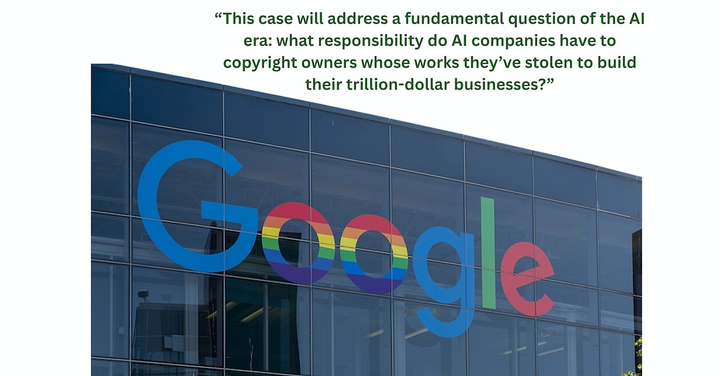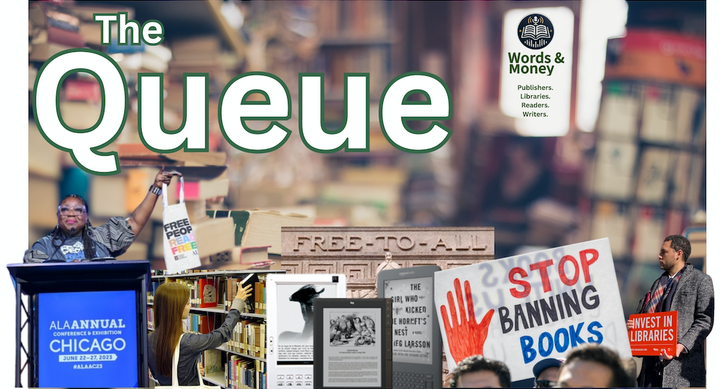The Queue: Library News for the Week Ending July 4, 2025
Among the week's headlines: the ALA Annual Conference draws more than 14,000 to Philadelphia; Ohio Gov. Mike DeWine vetoes a controversial anti-LGBTQ+ library provision; authors ask publishers to eschew AI; and why Idaho schools just got less welcoming, and more political.
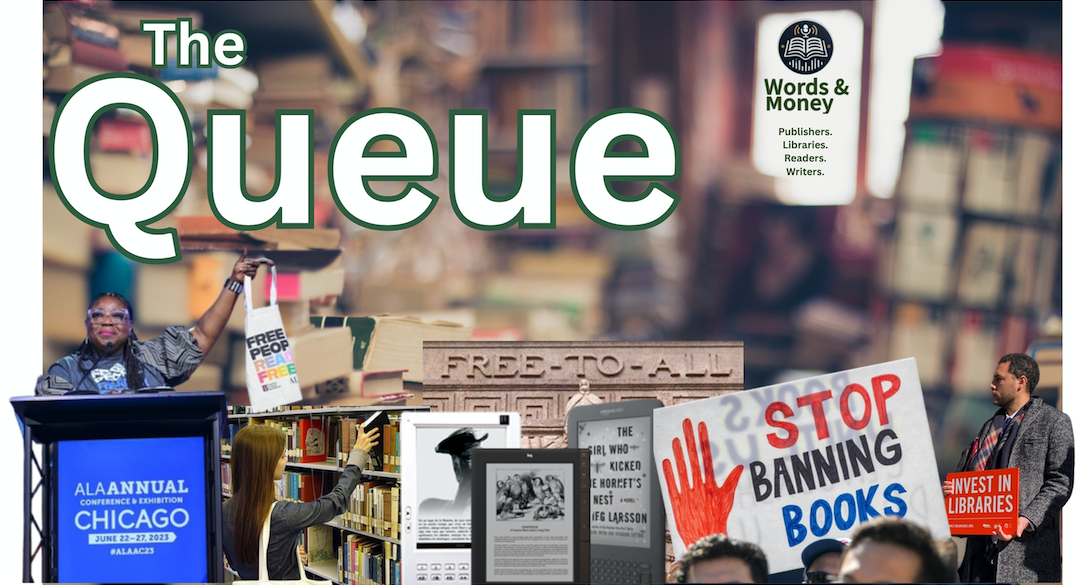
Happy Independence Day! On the heels of the ALA Annual Conference and with the July 4 holiday we're coming to you a little early this week (and with an abbreviated newsletter). But we'll be back after the long weekend with more news and features, as well as our coverage from the 2025 American Library Association Annual Conference, which wrapped up on June 30.
ALA officials put final attendance for the 2025 conference at 14,250, which we can now safely say feels like the new post-pandemic attendance level for the annual conference. The first in-person ALA conference after the pandemic in 2022 drew 14,003 attendees to Washington D.C., followed by 15,851 in 2023 to the ALA's hometown of Chicago, and 13,532 in San Diego last year. While those are solid numbers, they are down significantly from the pre-pandemic days—and that may represent something of a challenge for the association.
Consider this: From 2000-2019, ALA annual conferences averaged more than 21,000 attendees. During that era, the best-attended show—the 2007 event in Washington D.C., drew 28,499. That's double the number of attendees in Philly in 2025. Meanwhile, the lowest attended show during that 20-year span, the 2016 conference in Orlando, drew 16,597. That's roughly 2,300 more than this year's attendance. Compounding matters, over that same 20 years, ALA also averaged another 11,000 attendees at its Midwinter Meeting—which no longer exists.
The future of ALA Annual is one of several issues facing the ALA's new executive director, Daniel J. Montgomery, whose hiring was announced just before the show and who was introduced from the stage at the conference. And while many factors will certainly impact the association's ability to win back attendees, Montgomery and the ALA at least have a chance to make a major splash in 2026, when the ALA Annual conference returns to Chicago for the association's 150th anniversary celebration.
Despite the challenges, many of the librarians I spoke to at the 2025 show were fairly upbeat about some of the changes in the works for the association. We'll have more about that after the holiday. But for now, in reading coverage of this year's conference, I found Edith Campbell's School Library Journal piece—ALA Annual Is All But Done—to be one of the more thoughtful and provocative takes I've seen in years, and well worth a read.
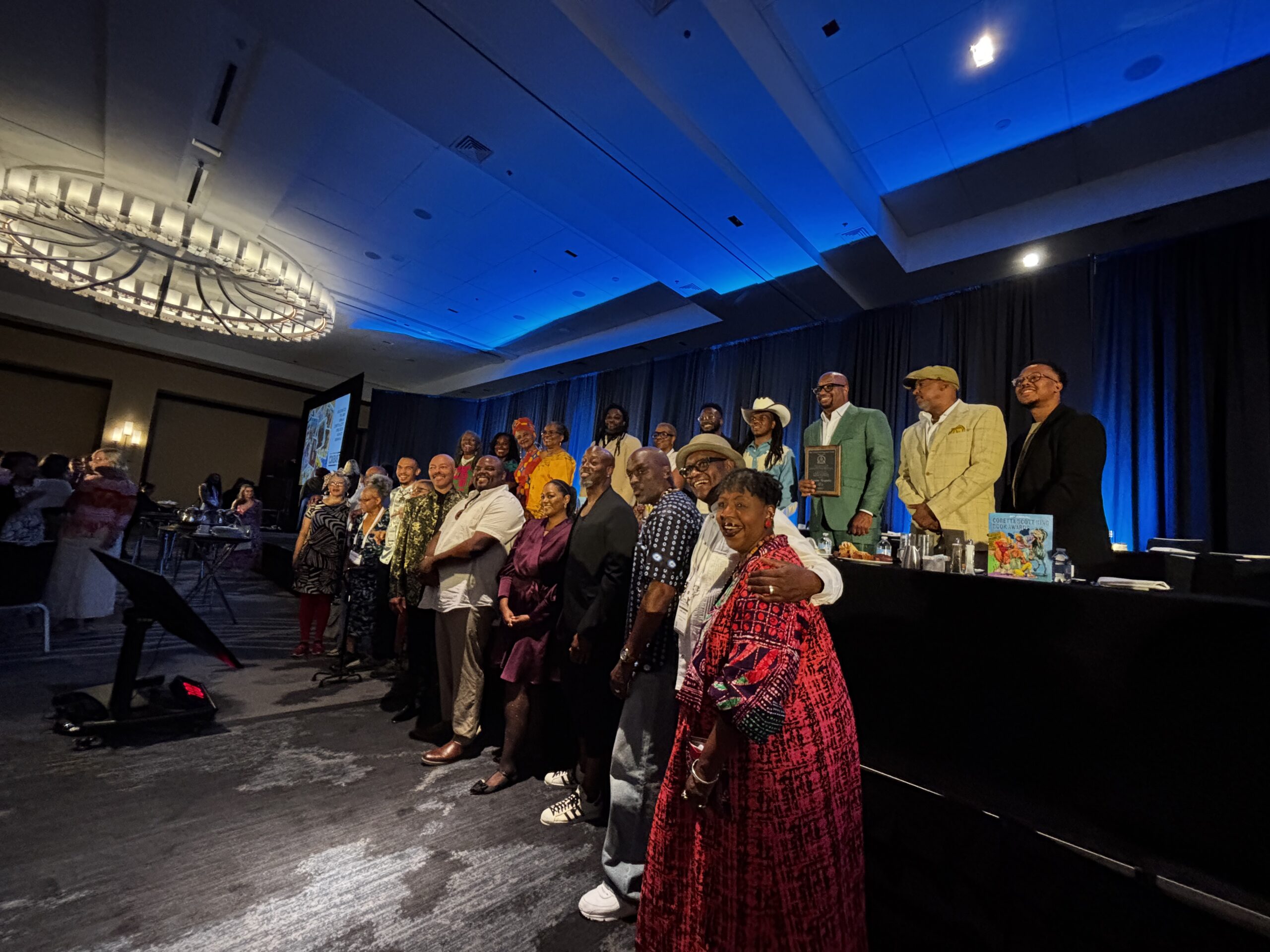
"The American Library Association s trying to figure itself out. Currently, it’s still a 20th century creation with all its hierarchies, functional divisions, centralized decision making, and fee structures. It seems to embrace the capitalist model that more is better, delivering this huge conference filled with so much stuff that it’s impossible to know everything that’s going on or sometimes to decide what to do," Campbell writes. "I wonder what could organizations–particularly those servicing information professionals—look like in the 21st century?"
As usual, American Libraries has lots of coverage of the show's main stage sessions and several panel programs, including the inspiring, much-needed mutual lovefest/support session between former Librarian of Congress Carla Hayden and author Kwame Alexander.
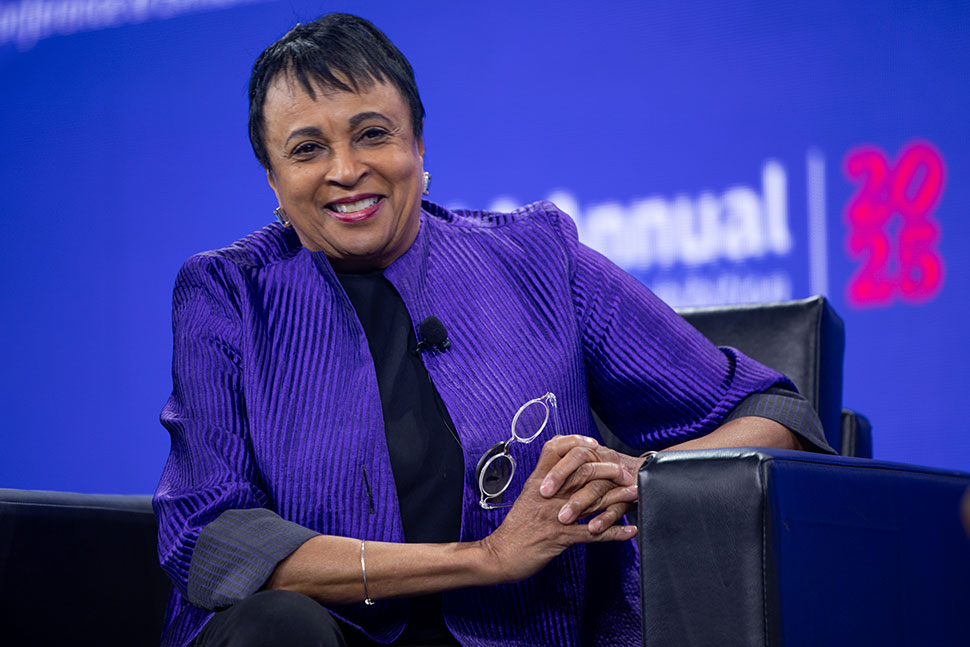
And via WHYY, Hayden also gave a talk at the Free Library of Philadelphia during the conference.

"In a conversation that touched on her career, her accomplishments and her abrupt dismissal, Hayden said she is hopeful about the future of public libraries and freedom of expression despite nationwide pushes for book bans and attacks on cultural institutions," the article notes. "'I’ve been able to be part of opening up the world to more people and to help them see themselves in the world and in the past, so they can do their future,' Hayden said. 'And that is a wonderful thing to think about, that you’ve been part of … All of what we do in these types of organizations, that’s what we’re doing. We’re betting on the future. And so I was glad that I was able to do that at the Library of Congress.'”
And congratulations to Sam Helmick, Community & Access Services Coordinator at Iowa City Public Library, who was inaugurated as the new ALA president. Helmick takes over for Cindy Hohl, who really did a great job amid an onslaught of challenges, from the ongoing battle over book bans to the dismantling of the IMLS.
Stay tuned for more from this year's ALA conference after the July 4 holiday.
During ALA, School Librarians Host a Read In

Via the Inquirer (this story is paywalled, but is available via MSN here), school librarians and their supporters staged a "read in" on the steps of the Philadelphia School District's building during ALA to highlight the plight of city's school libraries. The read-in was organized by the Philadelphia Alliance to Restore School Libraries. "In the 2024-25 school year, the district had just three full-time certified school librarians, perhaps the worst ratio in the nation. It used to have a certified librarian in each of its 200-plus schools."
Ohio Governor Signs Off on Library Cuts, but Vetoes Controversial Anti-LGBTQ+ Measure

Via the Ohio Capital Journal, Ohio Governor Mike DeWine has signed off on a budget that will deliver a funding cut to libraries, but in a move applauded by the library community he used his line item veto to block a measure that would require the state's public libraries to hide materials from minors related to sexual orientation or gender identity.
"The veto was delivered in the middle of the night, after DeWine signed the state operating budget late Monday, just before the deadline of midnight," the Journal reports. "At a press conference on Tuesday, DeWine said he thought the language was 'not workable.'"
Meanwhile, as Cleveland.com reports, despite personally supporting higher levels of support for libraries, DeWine did sign off on both a budget cut and a major change to the way the state funds libraries.

"The budget, signed late Monday evening, removes the longstanding formula that guaranteed libraries a percentage of the state’s General Revenue Fund, replacing it with discretionary line-item appropriations that could be more easily reduced in future budgets," the report states. "The changes come at an already challenging time for Ohio libraries, which have been operating at funding levels similar to those from 25 years ago despite increased demand. State funding represents approximately 51% of total public library funding."
After Supreme Court Decision, Administrators Brace for 'Accelerated' Censorship

The Guardian has a piece on the fallout from the Supreme Court's decision in Mahmoud v. Taylor, which will require that schools offer opt-outs for parents who object to topics based on their religious beliefs.
"Schools could struggle to determine what constitutes infringement on someone’s religious liberty while simultaneously honoring the freedom of speech guaranteed by the first amendment," the article points out. "Assessing the validity of removing books on religious grounds will also be problematic, given the broader ongoing campaign by parents’ rights groups and religious organizations to remove LGBTQ+ content from schools across the nation, especially in Republican-led areas."
The article features a PEN America statement on the effect of opt-outs released on June 26, the day before the decision was released.
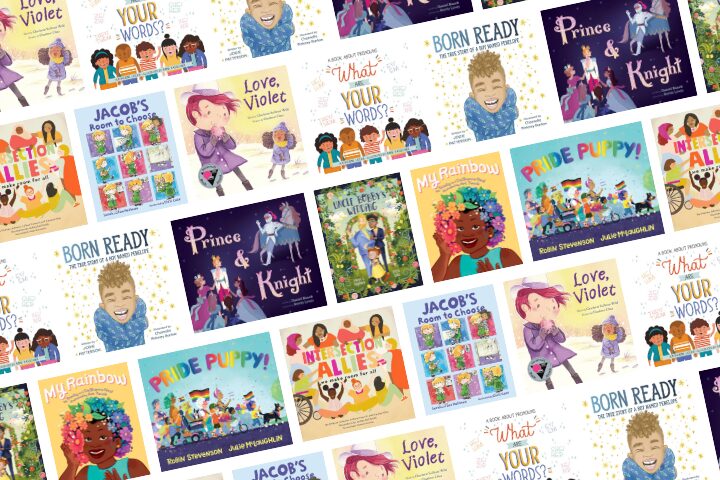
"At first blush, opt-outs might sound innocuous. But the result is not simply disruption in the classroom–it is the stigmatization of topics and identities that operates as a gateway to censorship," PEN America points out. "Rather than grapple with the hassle of roping off certain kinds of content and creating multiple lesson plans, teachers and school districts are more likely to pass over anything that might require parental notification, and in doing so will deny students the chance to learn about diverse identities and for many, to see their own families and lives reflected."
Why the Supreme Court's 'Mahmoud' Decision Reflects a Broader Assault on Our Institutions

EdSurge has a good overview that puts the Supreme Court's decision in Mahmoud v. Taylor in proper context, featuring Marianne Wood Forrest, an EveryLibrary Institute researcher, and author of the recent report “The Censorship Acceleration.”
"Book bans don’t exist in a vacuum, experts say, but are part of larger campaigns by political groups and their funders to decrease trust in public schools and smooth the way for state spending on private religious schools," EdSurge points out.
"A drop in trust of public schools goes hand-in-hand with efforts to fund private schools with public money," the article continues. "While book bans have also proven to be 'deeply unpopular,' Wood Forrest says, they still pose a threat to libraries and information access. 'The future of libraries, education, access, and representation is at stake,' she writes. 'Book bans in their current form are a tool used by the political right to destabilize institutions that have historically identified themselves as cornerstones of democracy.'"
U.K. Library Removes Transgender Books

From the BBC, the Kent County library in the U.K. has unilaterally removed transgender books from "the children's sections of its libraries," although it is unclear how many or which books were removed.
"Paul Webb, Reform UK's communities portfolio holder who oversees libraries, said the move came after a 'concerned member of the public' contacted him," the article notes. In a statement, Webb suggested that gender identity is something children must be protected from, like "alcohol, cigarettes and gambling."
Advocates were quick to criticize the move. "Censorship does not stop people from learning information but it does send the message, and it's sending a message to the young people of Kent that they're not safe and they're not welcome if they're LGBT or trans," Erin Strawbridge, manager of the Folkestone Bookshop, an LGBTQ+ bookshop, told BBC Radio Kent.
Authors Circulate Anti-AI Petition

Via LitHub, a group of authors are circulating a petition urging publishers to resist AI.
"The purveyors of AI have stolen our work from us and from our publishers, too. The hard-working editors and copy-editors and publicists and publishers that cared for and developed and launched the books we’ve written? Their jobs are also in jeopardy, which means that book publishing as an art form—a collaborative art form, nurtured at every stage by the personal touch of a human being—is in jeopardy, too. The audiobook narrators who have breathed life into our stories have already been sidelined by cheaper, simpler AI imitators. To add insult to injury, use of AI has devastating environmental effects, using great amounts of energy and potable water. What happens next?" the petition, signed by some big name authors, states. "We want our publishers to stand with us. To make a pledge that they will never release books that were created by machines. To pledge that they will not replace their human staff with AI tools or degrade their positions into AI monitors."
Cloudflare Pursuing a 'Pay-Per-Crawl' Model for AI
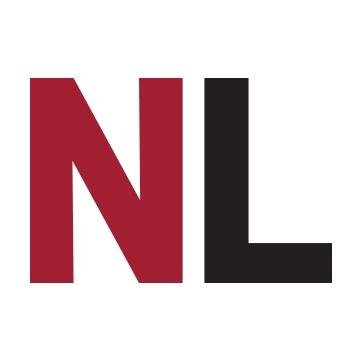
Via Nieman Lab, Cloudflare has reportedly become "the first major internet infrastructure company to block AI scraping by default" with new domains registered with Cloudflare to be "asked upfront" if they wish to permit AI crawlers to scrape their site.
"The shift from an 'opt-out' model to an 'opt-in' model means AI companies need to receive explicit permission from a website serviced by Cloudflare before scraping," the article notes. "The company also launched a private beta of 'Pay Per Crawl,' a new marketplace where publishers can request compensation from AI companies each time one of their pages is crawled. Rather than simply allowing or blocking crawlers, 'pay per crawl' opens up a third option: charging. Publishers can set their own rates on the marketplace, and AI companies can choose whether or not to accept them."
'Politicized' Pastor Now Leads His Local Library Board...and You Can Guess Where This Is Going

Baptist News Global has a lengthy profile of pastor Bill Bolin in Michigan, "a central character in Alberta’s book The Kingdom, the Power, and the Glory," for how he "politicized" his pulpit.
"In January, Bolin was elected to lead the Hartland Cromaine District Library Board of Trustees, even though he had less experience with public libraries than other candidates. He since has steered the library toward making it harder for citizens to access certain books, especially those with LGBTQ themes, according to reports in the Michigan Advance," writes Steve Rabey. "Bolin seeks numerous changes. He wants to make some books inaccessible to children, to require supervision in libraries’ teen areas, to limit adults’ access to others by storing them in locked cabinets or adding warning labels, and to open the district’s meetings with the Pledge of Allegiance. He also wanted to remove June Pride displays from libraries. The district had discussed some of these measures since 2022, but after Bolin took over leadership of the board in January, he has made them a top priority."
What's Going On at the Library of Congress?
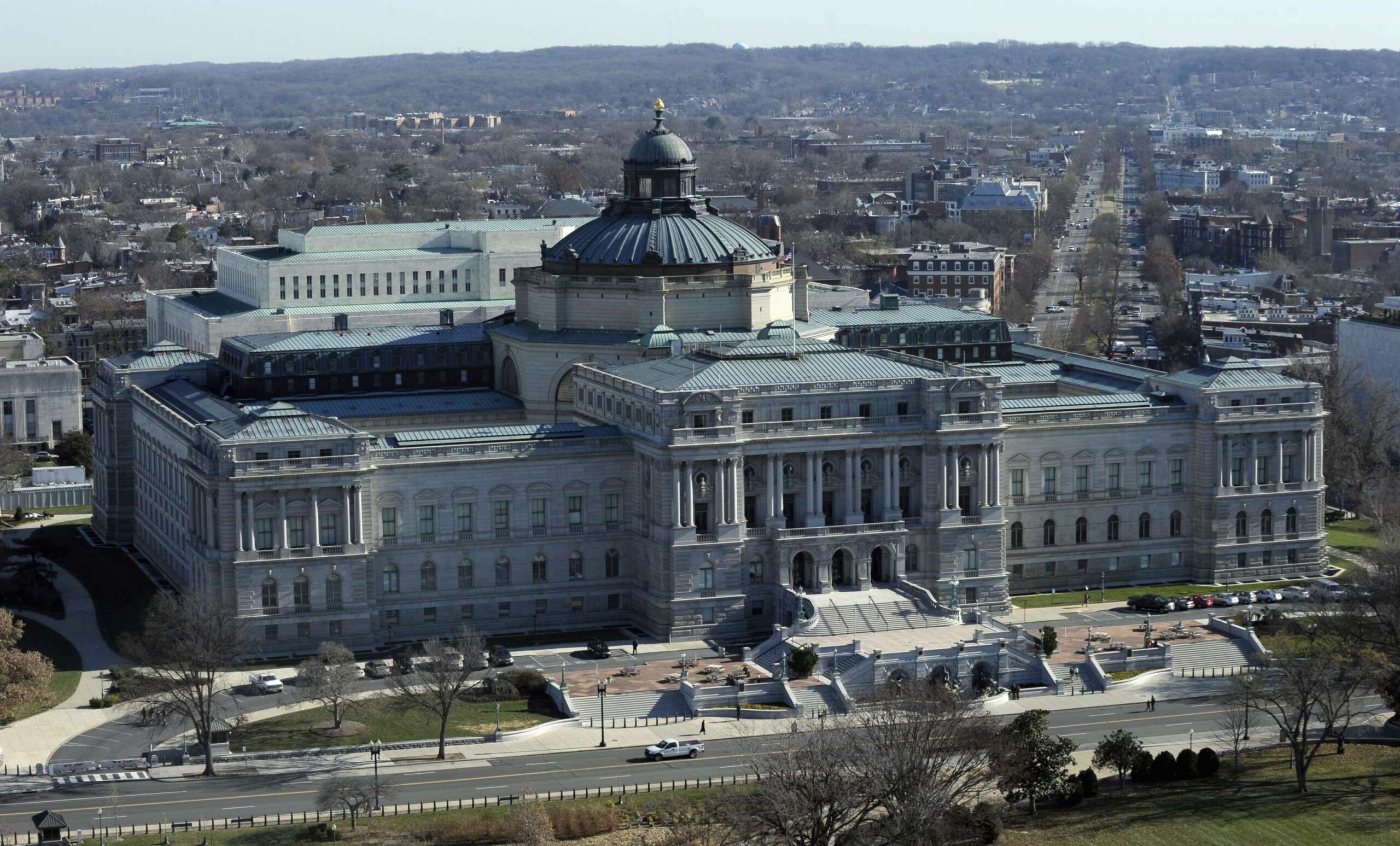
Speaking with Library of Congress employees at the 2025 ALA Annual Conference confirmed that, yes, associate librarian Robert Newlen is still running things after the shock firing of Carla Hayden in May. And this week, the Federal News Network has an interview with the American Enterprise Institute's Kevin Kosar about why the Trump Administration's bid to take over the library appears to have hit the wall.
"What I’m guessing is occurring is that the GOP in Congress does not want to create an open fight with their president about the Library of Congress," Kosar surmises. "They have a strong interest in appearing unified. The better the president looks, the higher the public support, the better their legislator’s odds are in the midterms of doing well, maintaining their majorities. So they’re trying to take this fight behind closed doors and bargain something out."
PW Releases Adult Books Previews for Fall 2025

Always one of the best issues of the year, our friends at Publishers Weekly have published their fall adult book previews. "Take it from us, the fall publishing season is shaping up to be one to remember. Thomas Pynchon and Kiran Desai are back, dark academia is on the rise, AI is in the crosshairs of some top-notch thinkers, and Margaret Atwood is telling all," writes PW reviews director David Adams.
The issue features books publishing between Aug. 1 and Jan. 31, 2026, highlighting a longlist of the fall’s most notable titles in 13 categories along with a top 10 list in each category. There’s also a searchable database of all the submitted titles.
I'll pluck one from PW editor Dana Snitzky's politics and current events listings: My friend Cory Doctorow's Enshittification: Why Everything Suddenly Got Worse and What to Do About It, out from MCD in October. Cory always brings it, and this one is right on time. I can't wait to read it.
San Diego Public Library to Once Again Feature at Comic-Con

San Diego Comic-Con officials this week announced that the Comic Conference for Educators and Librarians (CCEL), co-hosted by the San Diego Public Library, will return at this year's event. "CCEL is a multi-day series of panels aimed at exploring how comics can be powerful tools for learning, literacy, and engagement in both classroom and library settings," the release states. "Held at the San Diego Central Library’s Shiley Special Events Suite, CCEL runs throughout all five days of the convention (July 23–27) and is both free and open to the public. No Comic-Con badge is required to attend. Interested participants can now register on the San Diego Public Library’s website to secure a spot."
Clarivate Opens Its 2025 Library Survey

Via Research Information, Clarivate has launched its "Pulse of the Library" survey for 2025.
"Now in its second year, the Pulse of the Library survey is a global initiative that aims to capture the voices of library professionals across public, academic and national institutions. Run in partnership with Library Journal this year, it explores how libraries are responding to technological change, what challenges they face, and where they see opportunities for growth and impact."
The survey is open and "library directors, systems librarians and collections specialists are encouraged to take part."
And Finally This Week...
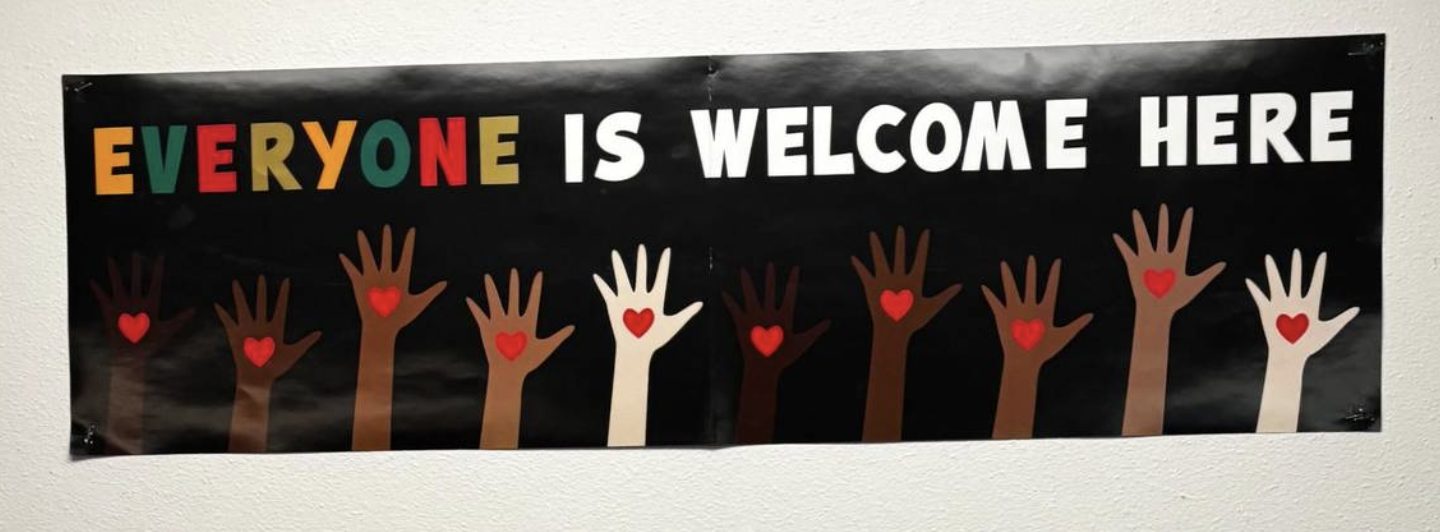
Idaho Education News reports that the "Everyone is Welcome Here” sign that made national headlines can no longer be displayed in Idaho schools. According to the report, guidance from the state attorney general advised that the poster runs afoul of a new state law that bans public schools from hanging banners that convey political viewpoints.
"The attorney general’s opinion released to EdNews Thursday had one section redacted, pertaining to signs West Ada School District teacher Sarah Inama had displayed in her classroom for years...West Ada administrators said the signs—including one displaying open hands of different skin tones—violated district policy. Inama refused to remove the sign, and in March, her story attracted national media coverage," the report notes. "Inama went on to argue that messages of inclusion are not political, especially when both state and federal law dictate that public schools must accept all children and cannot discriminate."
Call this fight a "sign" of our times. And ask yourself this simple question: exactly what, or more to the point, whose political viewpoints are served by banning a sign that tells children that everyone is welcome in school?



















